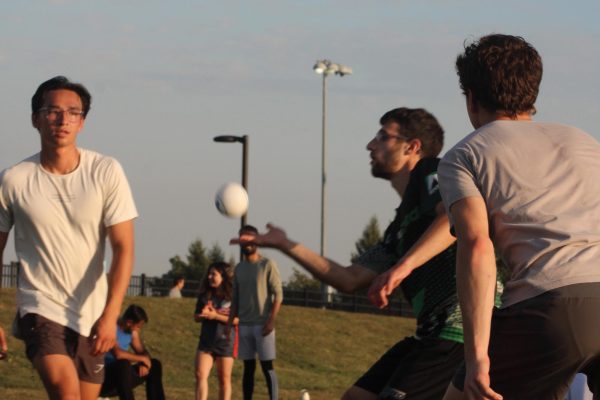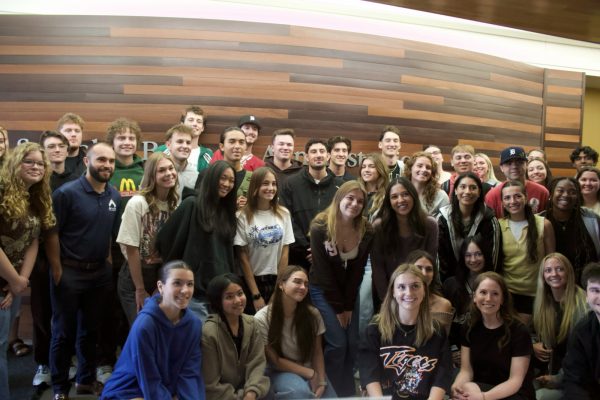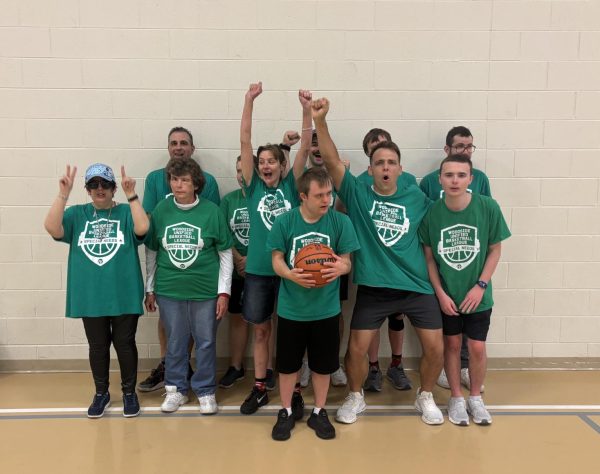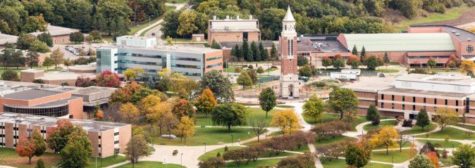Bringing back OPTIONS?
A group of 17 OU alumni, faculty and OPTIONS program (Oakland University Post-Secondary TransitIONS) graduates have petitioned Oakland University administrators to bring back the program.
They characterize the termination of OPTIONS as “short-sighted and counter-productive to the mission of OU, which states, ‘In all its activities, the university strives to exemplify educational leadership in a diverse and inclusive environment.”’
The program was initiated in 2007 to help people with mild cognitive disabilities attend classes at Oakland, get involved in student organizations, volunteer and learn life skills according to OU news archives.
It ended abruptly in 2009.
Looking for answers
In a letter sent to the university in September, the 17 petitioners say that Oakland is falling behind other institutions of higher ed around the country that recognize the “power of inclusion and diversity in a campus setting.” According to the letter, there are 209 such programs that offer inclusive higher education options for people with intellectual disabilities.
Ted Montgomery, former OU director of Media Relations said the program was discontinued for several reasons and at this time there are no plans to offer it again.
Dave Groves, OU’s current director of Media Relations, said this comment was still accurate.
Board of Trustee members and other faculty that received the letter refused to respond to The Post’s requests for comment.
The history
In 2009, the university said the reason for terminating the program was a lack of resources.
Robert Wiggins, then associate dean of School of Education and Human Services and founder of OPTIONS, said they did not admit new students into the program that year because they were not sure they could handle any more.
He declined to comment on the current situation.
However, the 17 authors of the letter are not the only ones who take issue with the decision to end the program.
“It’s a crock,” said Sharon Howell, OU communications professor. “The program could have easily gotten federal grants and the students were paying full tuition for classes.”
“It was narrow-minded thinking at the administrative level at the time,” Howell said.
Oakland stopped admitting students to the program in 2009, around the time a court ruled that an OPTIONS student could live on campus.
A dream
In 2007, Micah Fialka-Feldman decided that, after four years of sitting in on classes and participating in several student organizations, he wanted to live in an OU dorm.
According to Micah’s website, it was his new dream. He had seen the advantages of living on campus, including no more two-hour bus rides to and from Oakland everyday.
Feldman’s application was accepted and he was given a move-in date.
Going to court
Weeks before this date, however, Feldman received notice that he was ineligible to live on campus because he was not “a degree-seeking student” OPTIONS students do not receive an actual college degree.
After battling the school about this decision for two years, Feldman joined with the Michigan Protection and Advocacy Service (MPAS) to sue Oakland for violating his rights.
U.S. District Judge Patrick Duggan ordered in favor of Feldman, ruling that OU’s denial for his request for housing went against the Fair Housing Act and the Americans with Disabilities Act, according to the judgment filing.
Jarret Schlaff, OU alumni and friend of Feldman, agreed.
“It boggled my mind that someone who did so much work for campus, helping with the Bear Bus and designing the disc golf course, and had so much potential would be seen as unable to live on campus,” Schlaff said.
Moving in
In 2009, Feldman moved into a dorm, just as OPTIONS was being terminated.
He was able to finish and graduate the program because he was all ready enrolled. After cancellation, the program did not submit any new students.
Kristin Dayag was OU student body president and friends with Feldman at the time of the case.
“I believe it is a disservice for, not only to the students with mild cognitive disabilities who aren’t able to have a post-secondary educational experience, but also to the students at Oakland University who can not be a part of a diverse and truly inclusive educational environment,” Dayag said.
Feldman now lives in New York and works at Syracuse University as a teacher’s assistant.
To read the letter written to OU Board of Trustees, check out The Oakland Post online.
Contact Staff Reporter LeeAnn Brown at [email protected]








